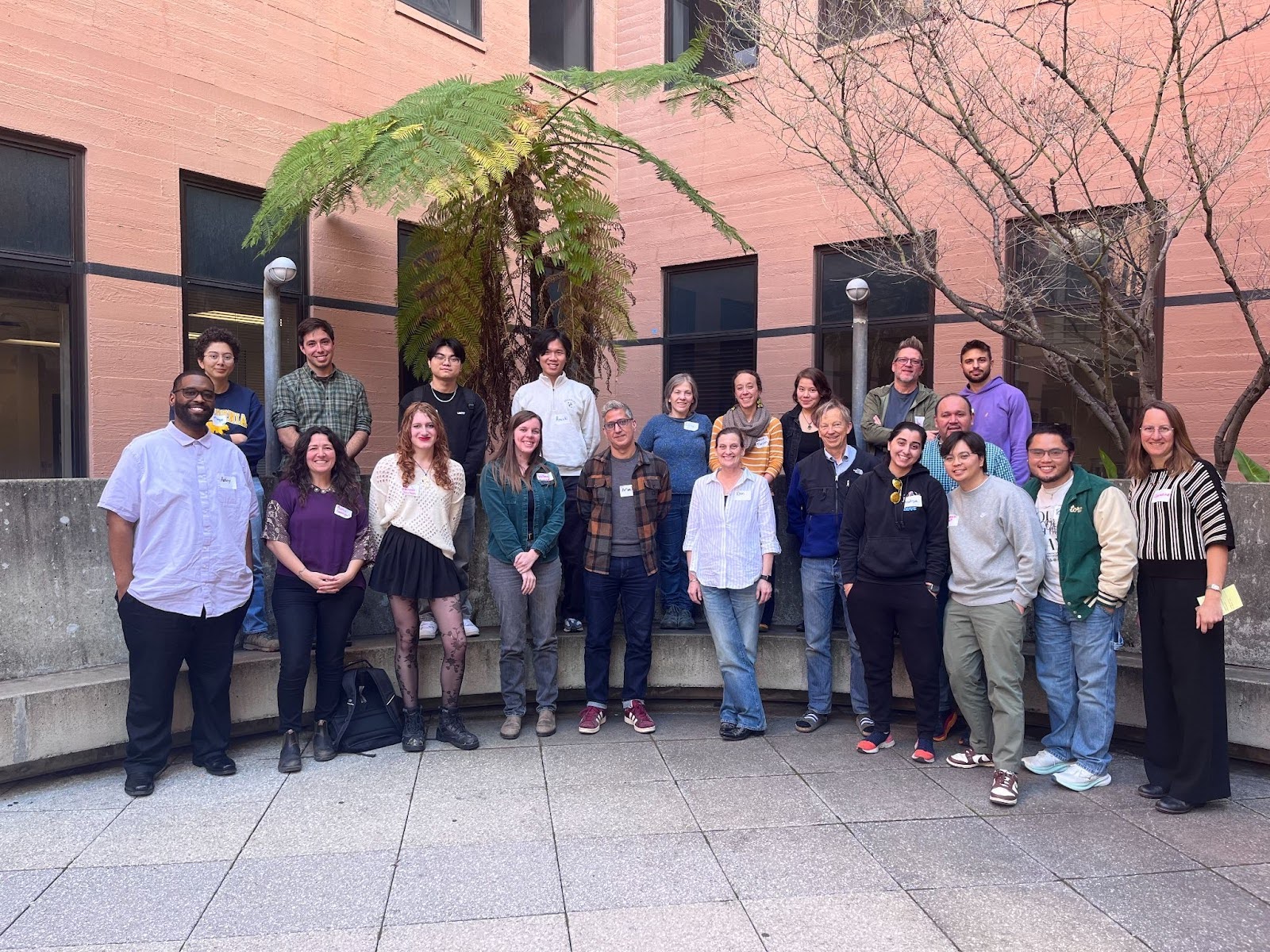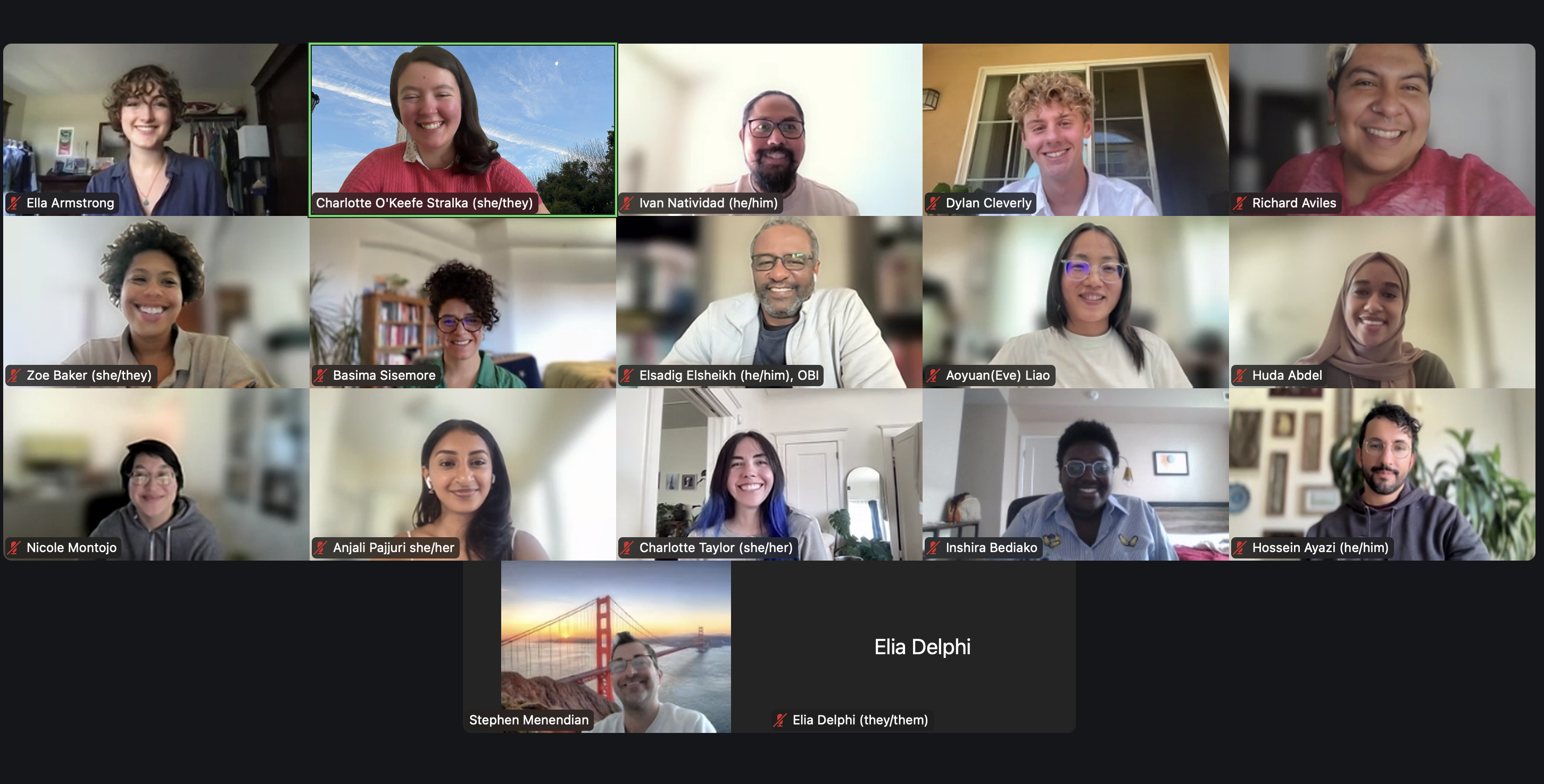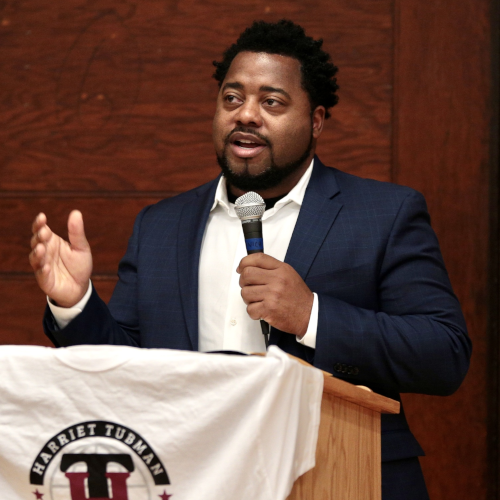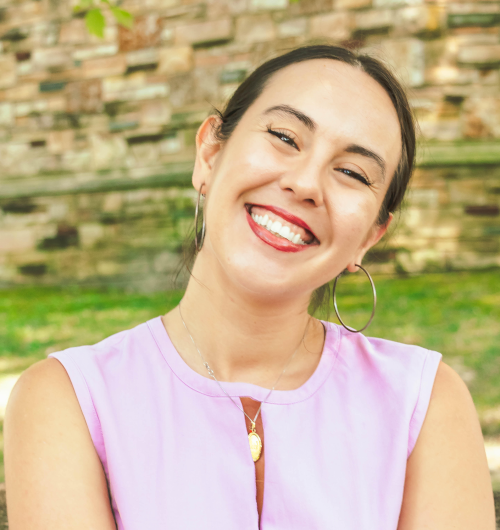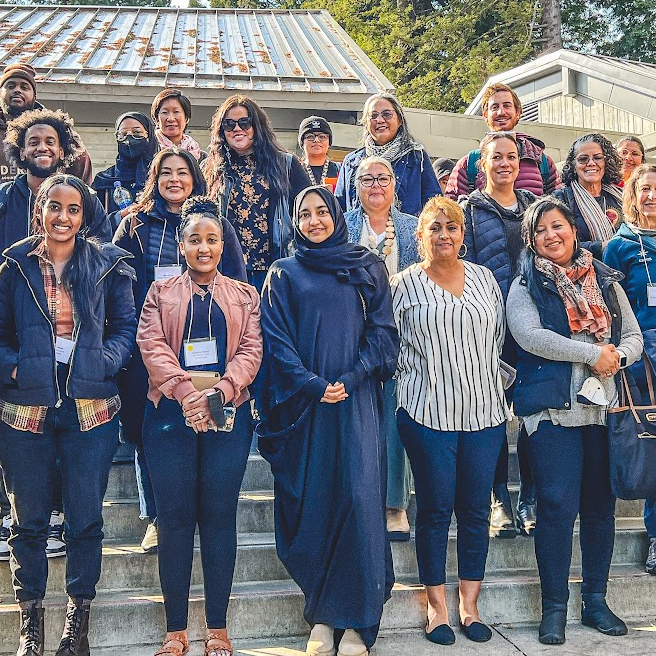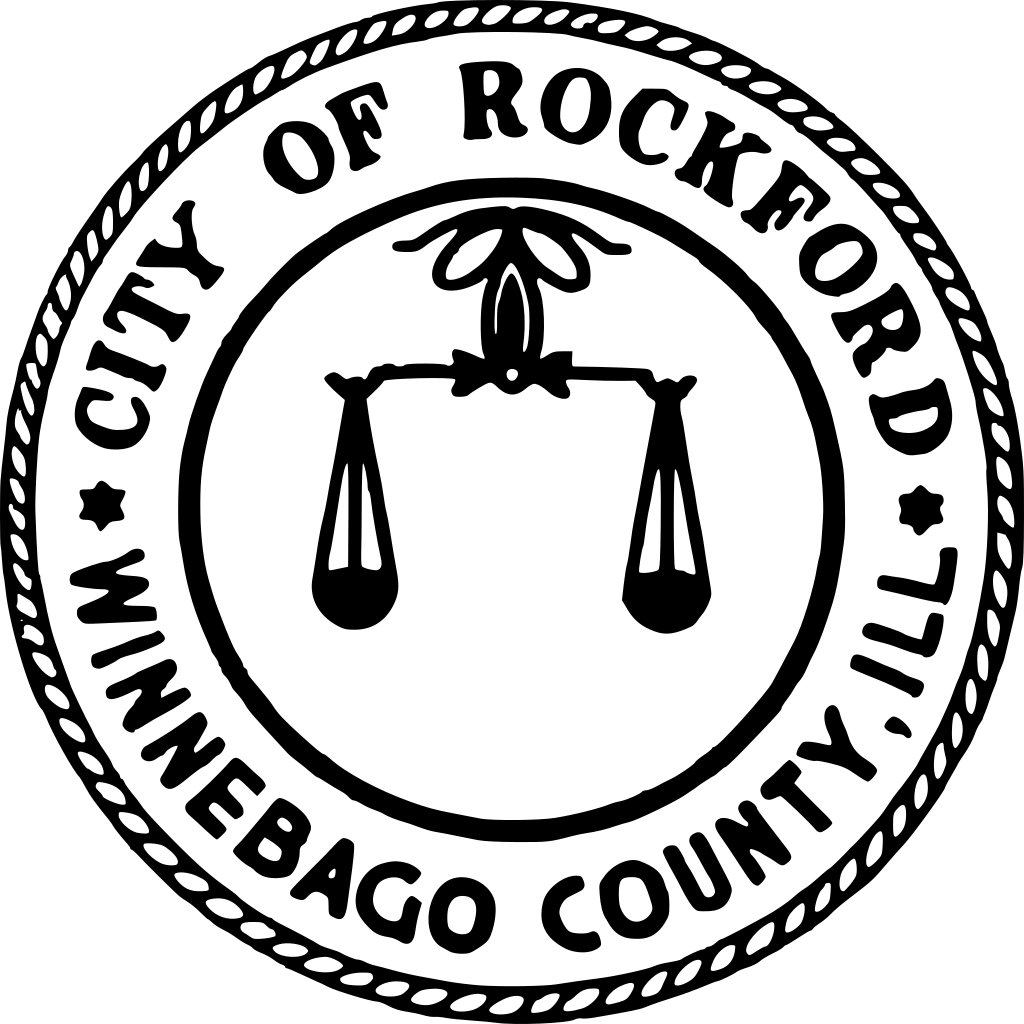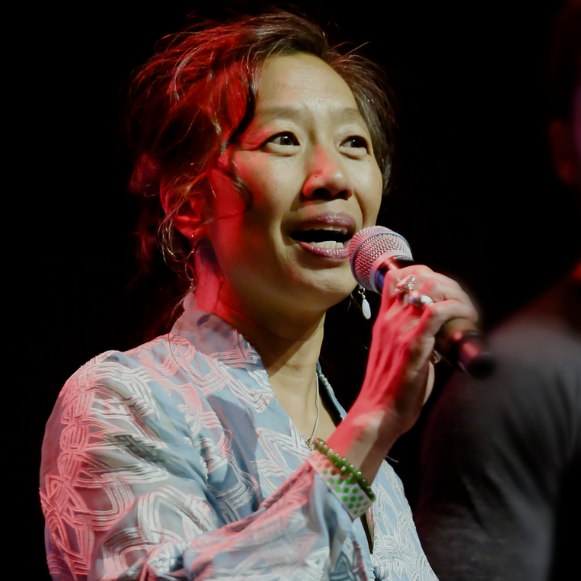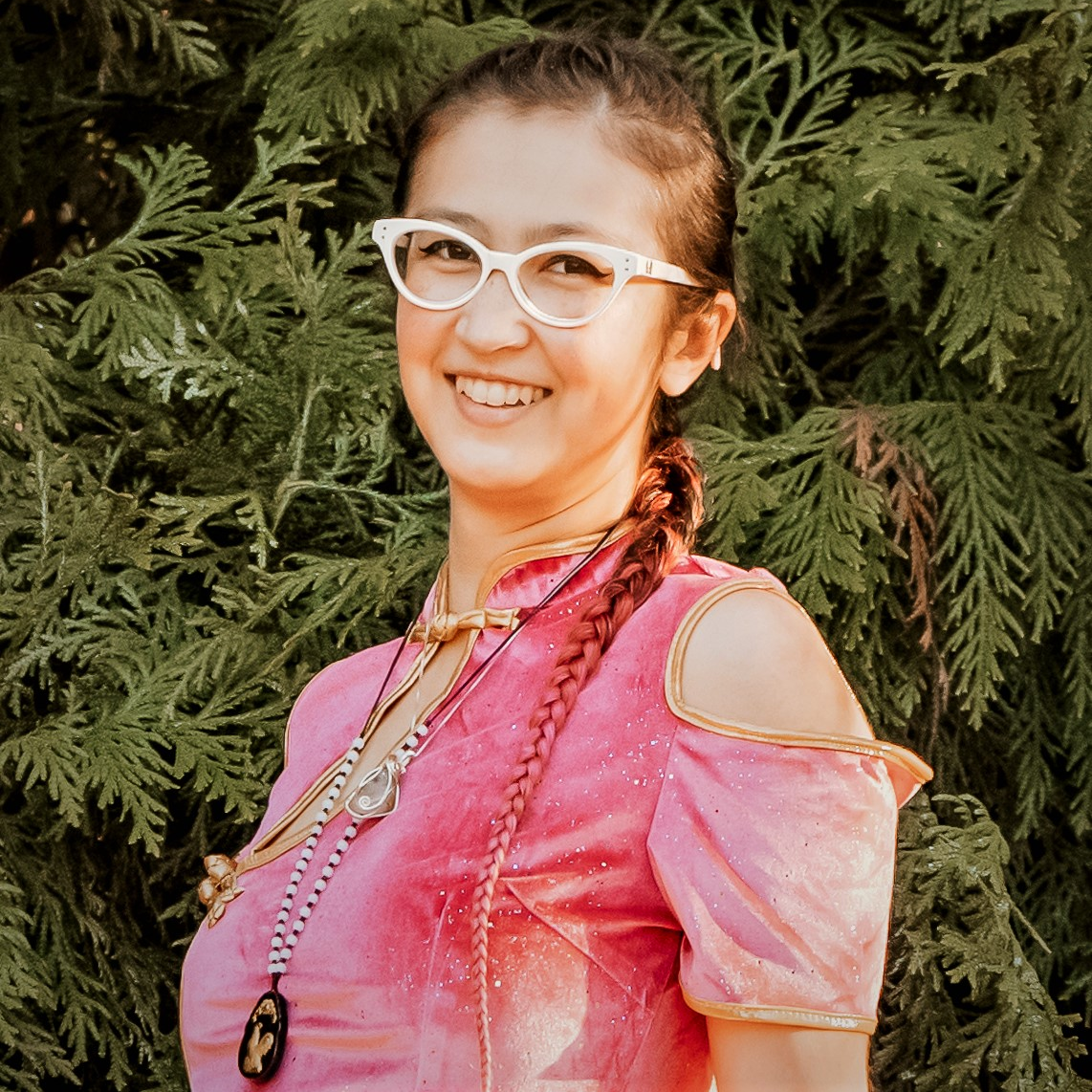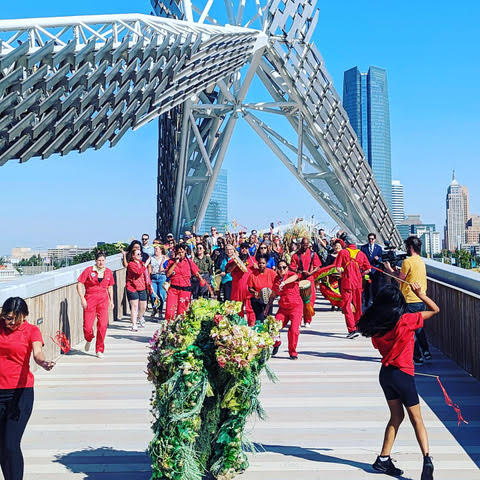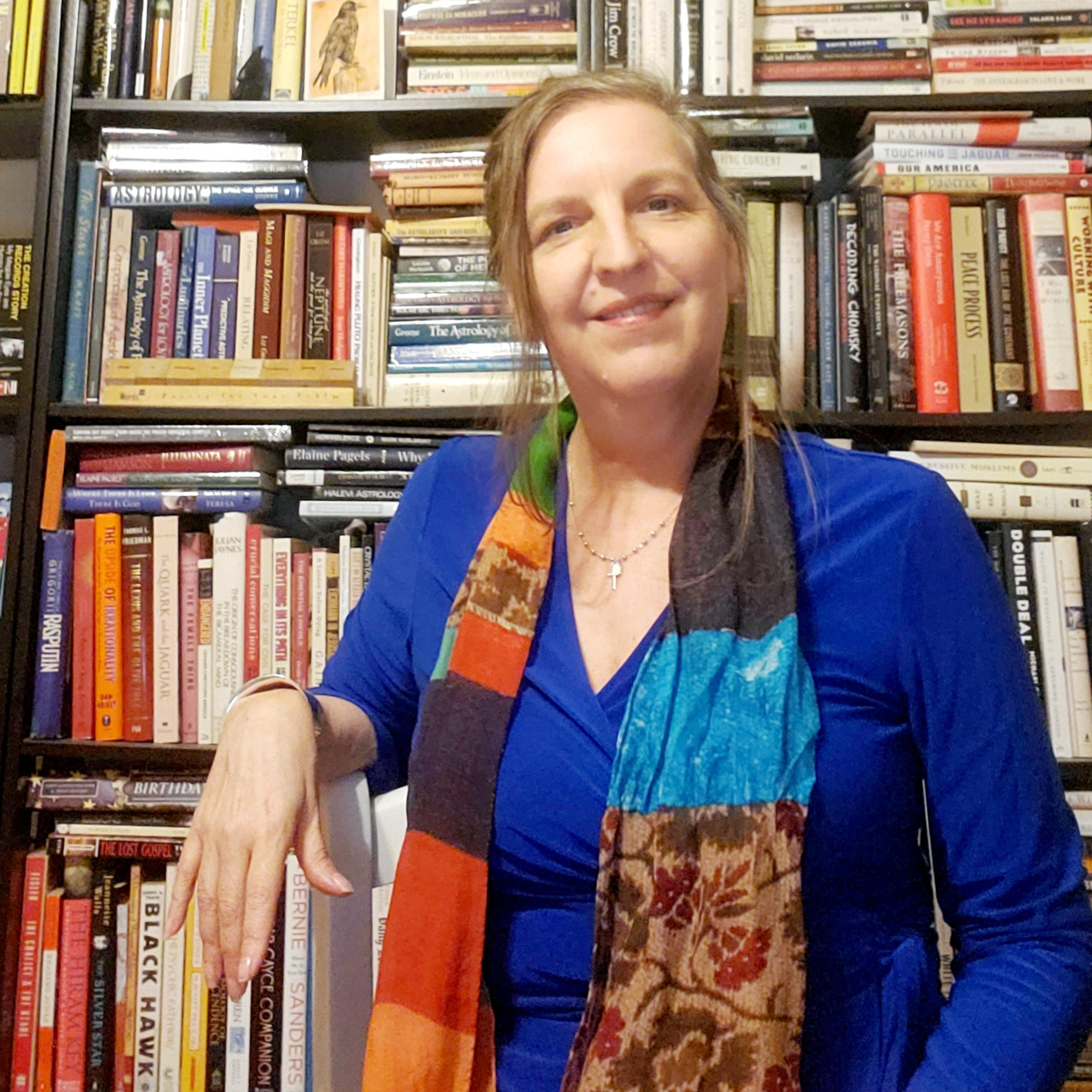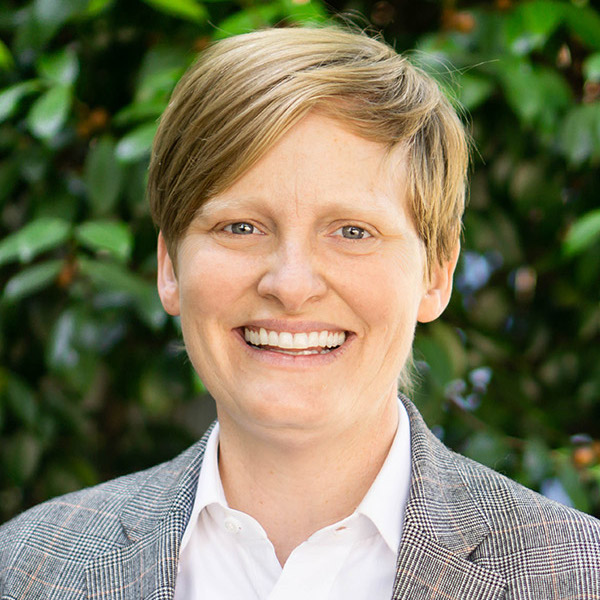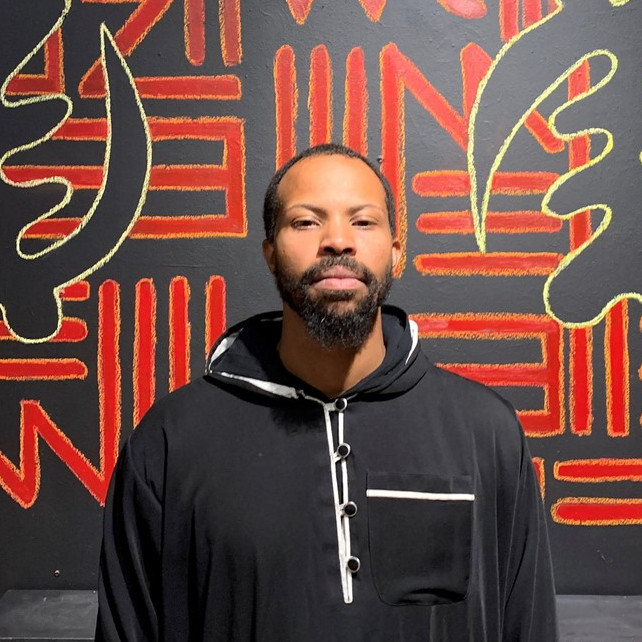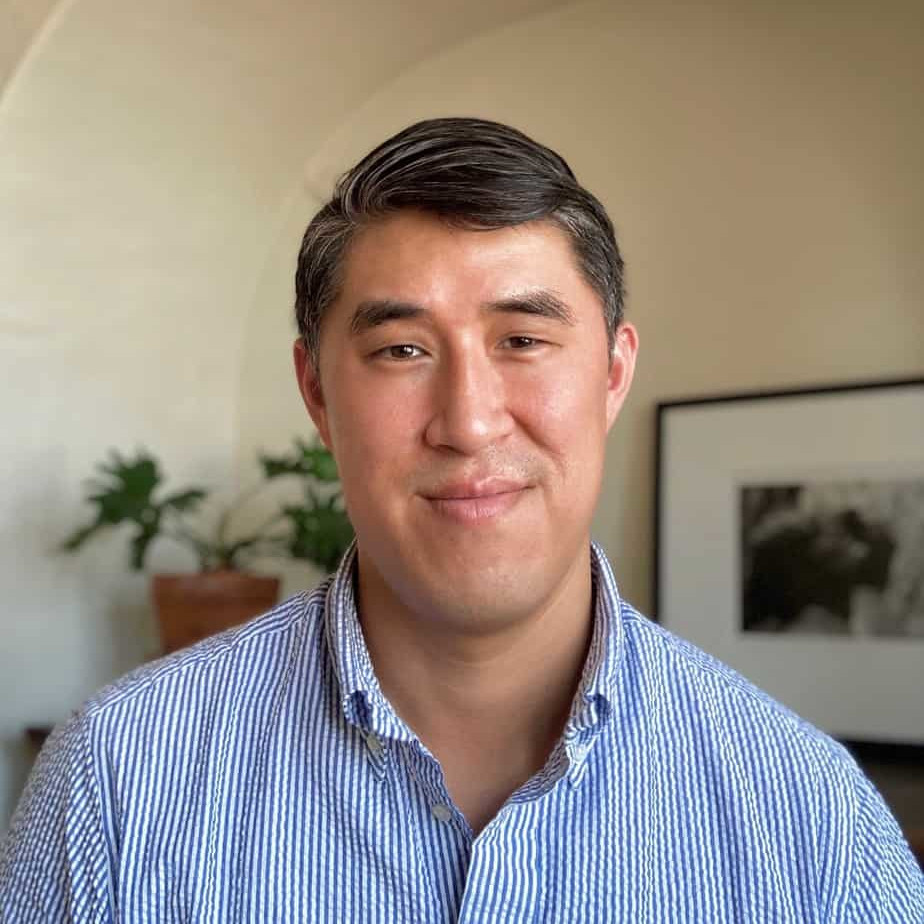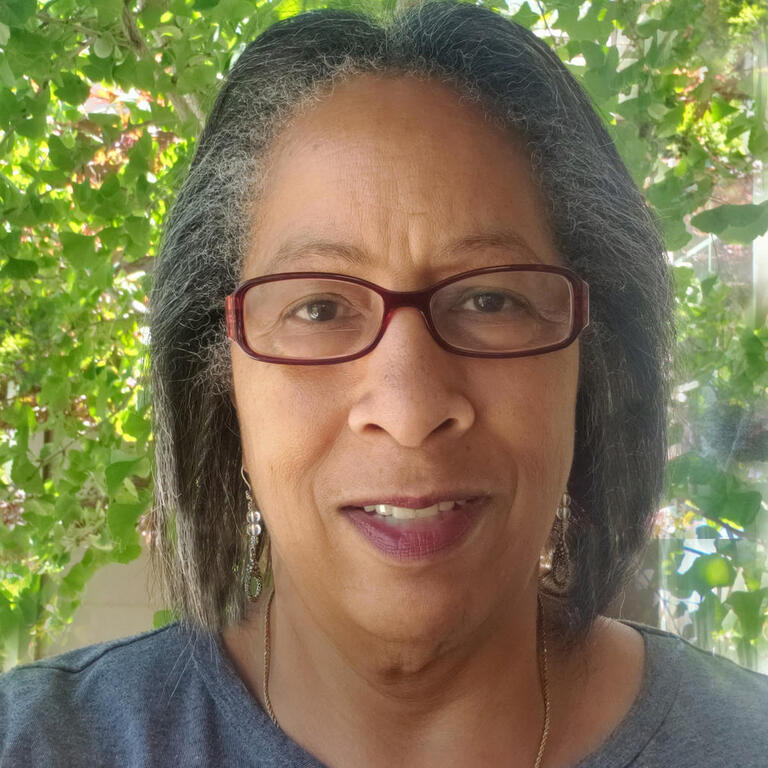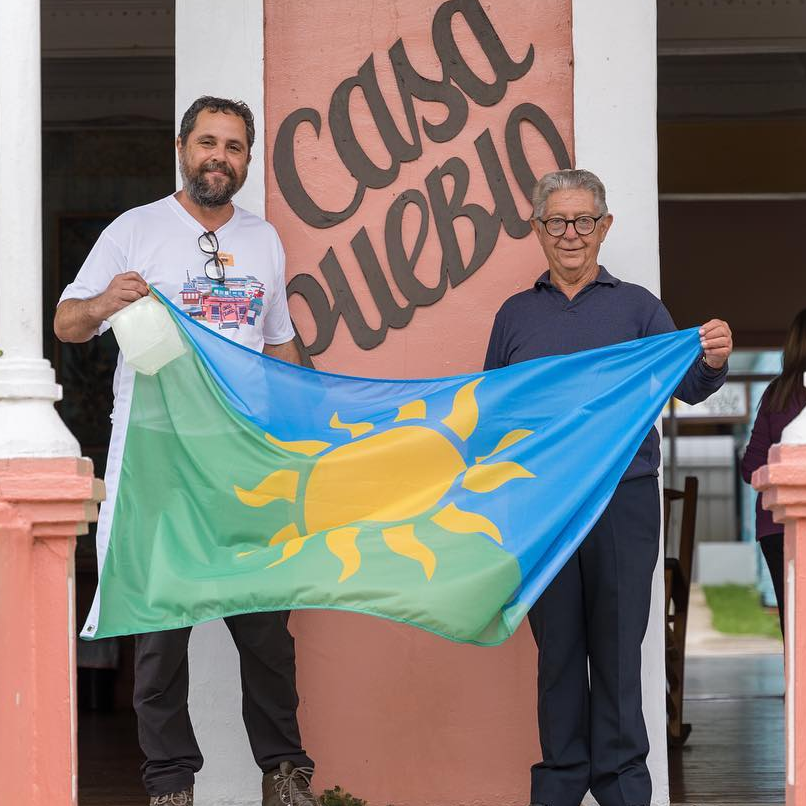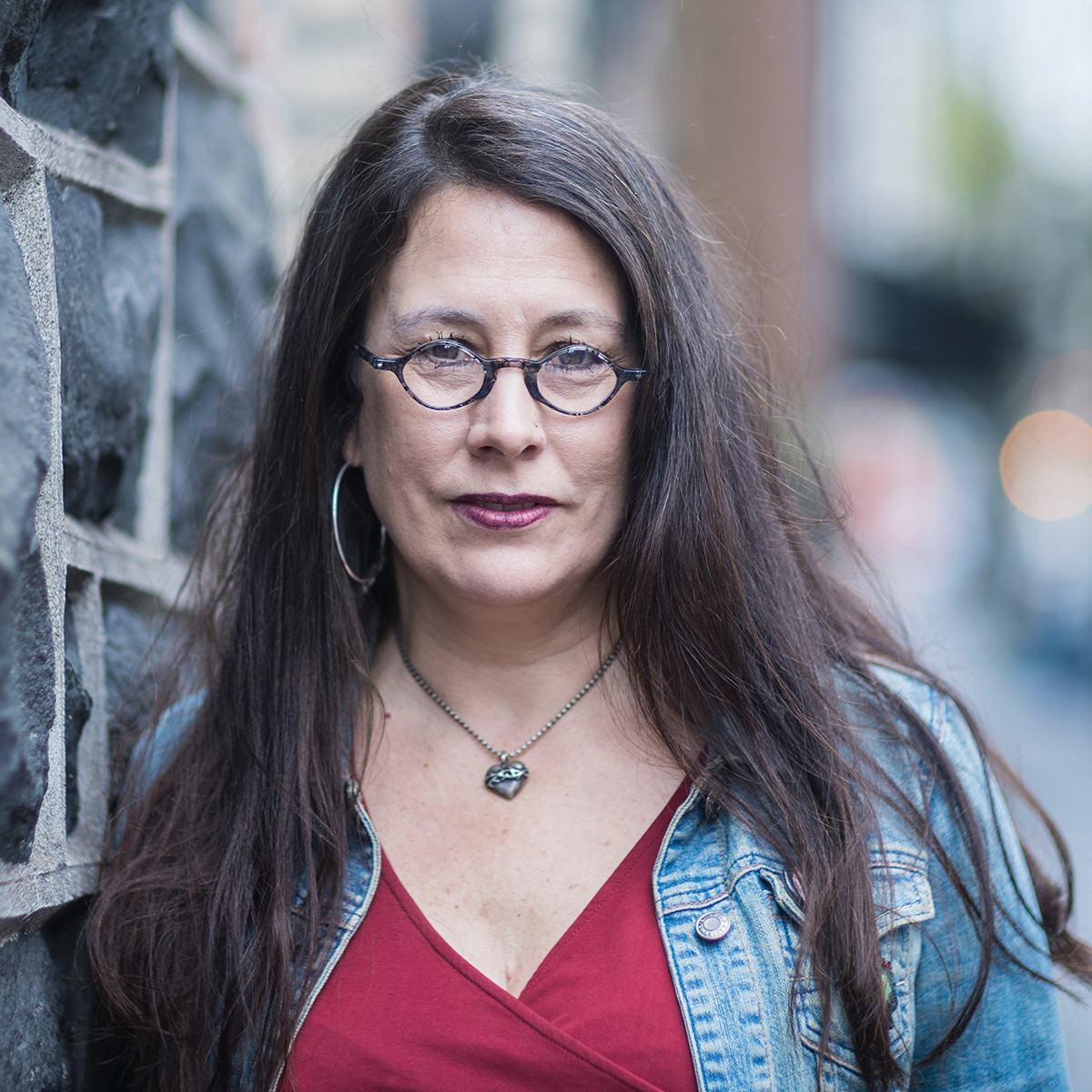Since our founding in 2012 we've believed that research shouldn't be conducted merely for the sake of research. An ancient proverb reminds us, "To know and not to do is not to know." In that spirit our commitment has been for our research center to serve as a hub for civically engaged people from all backgrounds and sectors to use our resources to help make belonging a reality in their communities.
So, we have issued an ongoing call to hear directly from you, the people who in some way were influenced by OBI to make a difference in big and small ways across the world. On this page, you'll hear some of those stories. And we will continually update it as more stories are submitted.
If you have an impact story you'd like to share with us, we'd love to hear it. Get in touch with us at belonging@berkeley.edu, and type "Impact Story" in the subject line.
Long-bridge organizing is rewiring democracy, one conversation at a time
Bridging for Democracy (B4D) groups, in the past year, have knocked on over 26,000 doors across six states and held nearly 2,350 deep conversations with residents from all backgrounds. Organizers tracked not just contact rates but shifts in openness. The impact? Residents grew more engaged as conversations unfolded, and three-quarters said they’d welcome canvassers back.
These efforts offer a clear lesson: long-bridging is an antidote to authoritarianism. Read the story here.
Bridging in the biosciences by building a better environment
OBI's Campus Bridging Project is collaborating with UC Berkeley's Graduate Division to create interdisciplinary and inclusive communities. This impact story highlights efforts to build an ecosystem based on trust and belonging among the biological sciences. “It was proof of concept ... If we want a more just and resilient future, we need to acknowledge the human side of science.”
Renewing my commitment to the power of connection
OBI 2025 summer fellows share their experiences working with the institute and how it has changed how they view the future. "Through my work, I've stepped outside of my comfort zone and learned about different thought processes and viewpoints, which has only made me a better researcher and scholar."
How OBI's conference helped me to tell my story
As planning for Othering and Belonging Institute's 2026 conference begins, a student attendee reflects on the impact the 2024 Belonging Without Othering conference had on the trajectory of their career and life. They write: "We are defined through the many stories we tell, and gathering in a space to tell those stories is revolutionary."
How Targeted Universalism Is Bringing Equity to Chicago's Public Schools
Chicago Public Schools former equity chief Maurice Swinney writes about the transformative power of Targeted Universalism (TU) in education, and the importance of listening to our young people. He writes: "Teachers who used the TU framework saw both academic and social progress. Chicago has since regained academic ground, thanks to how schools and classrooms prioritized listening to build effective strategies to support young people."
What belonging looks like in data
After attending our recent Data Equity Convening, urban planner and community connector Fatima Elkott was inspired to write about what belonging can look like in data. Her story highlights how one local agency is rethinking its dashboard moving from punitive metrics to those centered on care, connection, and community well-being.
How libraries can serve as places of belonging
"The ways that OBI’s frameworks talk about belonging and the materials that are offered really helped me not only think about the beauty of bringing different people together, but also the tension that was there and how to deal with that tension. How do you begin to deal with that tension?"
Safety Through Connection
"In 2022, the Safety Through Connection team at Prevention Institute led a design process with our Learning Community partners. After three years of building capacity for culturally-rooted strategies to promote safe communities and prevent domestic violence, two of which fell squarely during the height of the pandemic, it was time to reflect and evolve our collective work."
A City of Belonging
"When I first heard john powell speak a couple of years ago about belonging, I knew we needed to bring him to Rockford, our town of about 150,000 people, located about 90 miles west of Chicago. Here, I serve as the executive director at the Northern Illinois Center for Nonprofit Excellence, which is a capacity building organization that provides training for nonprofits and provides facilitation skills for community initiatives."
Just Cities
"The Othering & Belonging Institute has opened the doors for us as educators at UC Berkeley to name the structural root causes of injustices today, be it homelessness, displacement, climate change, transportation equity, and so on. I teach classes regarding racial justice, city planning, public policy and law at the Goldman School of Public Policy and the City Planning Department."
Eviction Resolution
"In the summer of 2021, I attended OBI's virtual seminar, "The Roots of Structural Racism: Residential Segregation in the US," as part of my preparation to begin receiving clients in my role as an eviction resolution specialist for a pilot program in Whatcom County, Washington."
Healing Through Art
"I discovered the Othering & Belonging Institute in 2021, when I first began crafting plans for SPARK!’s pilot in Oklahoma City. A late night rabbit hole led me to Evan Bissell’s excellent article, 'Frames for Life, Liberation, and Belonging,' which not only deepened my resolve, but also expanded my own frame of possibility."
Diversity and Fair Housing
"Whether for educating our members about fair housing history, offering important background information to our Board of Directors, explaining diversity concepts, or helping our members understand current housing disparities - the Othering & Belonging Institute’s resources have proven invaluable. Last year (2022) Stephen Menendian gave an incredible and timely presentation to a packed room of our Board and annual conference attendees about REALTOR® fair housing history. What I love about O&B is that their staff, tools, presentations and web resources offer some of the most comprehensive yet accessible information about diversity and fair housing that I’ve been able to find."
International Cities of Peace
"As a Spiritual Director, collaborator and a pro bono Facilitator for International Cities of Peace (ICP), I am using my listening skills to hear beyond what is said, and supporting a virtual sense of belonging in private sessions and for global community-building. It is important in Spiritual Direction to be present and informed to create a sense of comfort and belonging, OBI helps me build the skills to sit with anyone, and know when my style is not the most effective for an individual's unique journey."
Inclusionary Zoning
"The Othering & Belonging Institute's work has served as a foundation for new evidence-based approaches that end unfair zoning practices and instead create opportunity for people at all income levels. It can be hard to spot what's wrong with the status quo. For too long, we failed to recognize how single family zoning excluded people from communities with good schools and jobs. The Institute's groundbreaking research has illuminated the dark side of urban planning practices that we took for granted and continues to light a path toward more equitable and inclusive cities."
Spark of Motivation
"Employees in the IT Department at the City of Minneapolis where I work are experiencing many emotions as a result of tragic killings, including the recent attack at Club Q. We are horrified. We are distraught. We are disheartened. We are angry.
Your belonging statement brought solace to our team. More and more I hear people talk about belonging at work."
Interdisciplinarity Works
"There are few opportunities, even within academia, where one gets to truly be doing interdisciplinary work. My experience as a Summer Fellow at OBI was one such experience, and I look back with much gratitude for being given the opportunity to learn and think with others from a wide variety of backgrounds. There were poets, historians, environmental scientists, playwrights, urban planners, computer scientists, and ethicists - all under one roof. It has been difficult for me to find myself in anything close to a space quite like OBI, but I seek to bring that experience into my own spaces going forward. If nothing else, OBI taught me that interdisciplinarity DOES work, it IS possible, and it makes for more honest research."
Towards Inclusive Our-Stories
"The Institute’s work on belonging has been critical in my public history work. In my hometown of Alameda, CA, I led efforts to rename a school and park honoring white supremacists. These campaigns opened up opportunities to not only engage communities about public space and local history, but created space for more inclusive curricula, land acknowledgments, and more. Now as a board member of our local history museum, I will continue to use belonging as I attempt to expand the circle of narratives beyond just the whiteness of Victorian era history towards inclusive our-stories."
Seeding Ideas
“Whenever I speak with folks focused on belonging, it’s striking how many will trace their interest to john powell or the Othering & Belonging Institute. They credit OBI with seeding the ideas for their work. That's certainly true of Omidyar Network and our newest area of work, Building Cultures of Belonging, which focuses on helping our increasingly diverse society to turn toward one another rather than against each other.
OBI was an early influence on us. Today we see them as a critical element of a global network of innovators working to build belonging in many contexts — classrooms, corporations, local communities, faith traditions, the arts, government, and beyond.
The United States is just one of many societies grappling with rapid demographic shifts, economic swings, and disruptive technologies — all of which make questions about "who belongs" so much more urgent. In this context, it will take entire ecosystems working together to expand equality, connection, and respect. We're inspired to be doing this work alongside OBI and so many others.”
From Blaming to Belonging
"My husband and I recently bought a small condo in southern California where we have family. When we moved in we decided to attend a board meeting. ... From the first meeting, I was shocked by the othering language that was being used by the board members (who are all owners) to refer to people who are renting units. ... The whole space needed transformation, and I'm happy to say that in the last 3-4 months since I've been on the board, the message of belonging has begun to resonate. We've gone from a 0 to a 7. The language of othering is mostly a thing of the past. What occurred is a really nice opening for transformation to occur. We still have progress to make, but now there's at least awareness and willingness to move forward with a sense of belonging for all community members."
Puerto Rico's Energy Insurrection
"A couple years ago we worked closely with Eli Moore (program director at OBI) on a participatory research project here in Puerto Rico where I live. As head of Casa Pueblo, my work is focused on addressing the issue of energy insecurity in our communities. Some of you may know that Puerto Rico has been suffering from a centralized, fossil fuel dependent energy production system that fails on a regular basis, and is especially vulnerable during hurricanes. This was most serious during Hurricane Irma and Maria in 2017, and more recently with Fiona last year."
Making Democracy Better
"When we first dreamed up Oregon’s Kitchen Table thirteen years ago, I was part of a rag-tag group of community leaders that believed that Oregon could be better at responding to the needs and preferences of all Oregonians. We believed that Oregon could be a better democracy. ... Not long after we opened our doors, we discovered the concept of targeted universalism, and we have never turned back. Though the concept was introduced as a way to frame policy proposals, we eagerly responded to its principles and adapted it to enhance and enrich community engagement."
